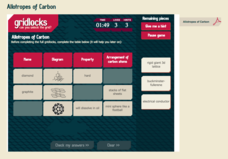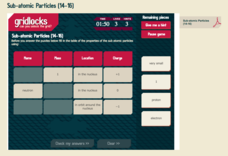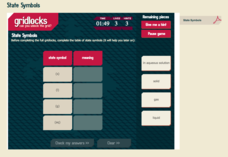Royal Society of Chemistry
The Blast Furnace
The largest chemical reactors are blast furnaces, used to make iron from ore. Scholars explore reactants by first matching each one to its purpose and formula. Then, a series of three gridlock puzzles reinforce the content while...
Royal Society of Chemistry
Allotropes of Carbon
Carbon takes on many forms including diamond, graphite, and buckminsterfullerene. Scholars review their knowledge of these three allotropes of carbon as they complete four puzzles. The first acts as a general review, and the other three...
Royal Society of Chemistry
Units of Volume
Did you know in the UK a quart is smaller than in America? This explains why a standard unit of measure is necessary for volume. Young scientists learn the similarities and differences between five different units used to measure volume....
Royal Society of Chemistry
Moles Equations (14-16)
In chemistry, the mole is a unit of measurement, much like a millimeter or liter. After learning about moles, scholars learn various equations relating to mass, volume, and concentration. They review each of these equations in a few...
Royal Society of Chemistry
Forensic Tests
Flame tests determine if there is a specific metal in a chemical compound. Young forensic scientists review their understanding of flame tests and hydroxide precipitates by solving puzzles. The timed review encourages mastery.
Royal Society of Chemistry
Sub-Atomic Particles (14-16)
In 1897, J.J. Thomson discovered the electron, the first subatomic particle proven to exist. Scholars review their understanding of electrons, protons, and neutrons as they work through the puzzles. Each puzzle connects two or three...
Royal Society of Chemistry
State Symbols
When water is a solvent in a chemical equation, we consider it an aqueous solution. Scholars match the name of four states of matter to their proper symbol in a chemical equation. Four puzzles provide repetition to help pupils remember...
Royal Society of Chemistry
Types of Bonding
A covalent bond yells at an ionic bond, "Didn't anyone teach you to share?" Four matching puzzles allow pupils to review covalent, ionic, and metallic bonding. They apply logic and problem solving to complete gridlocks including the...







